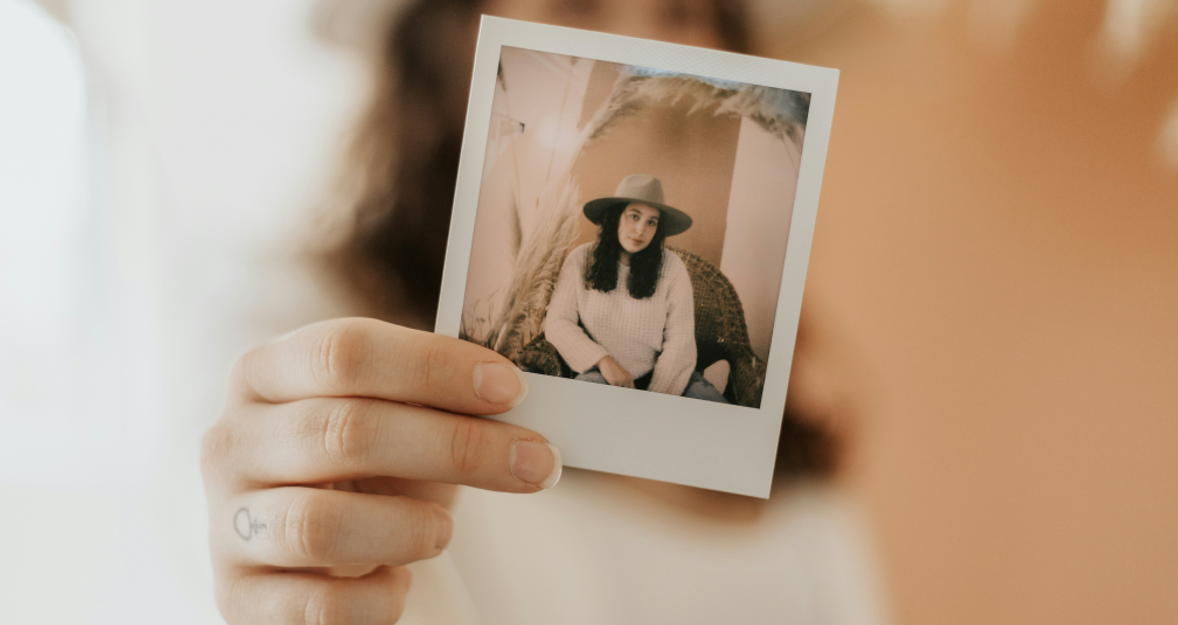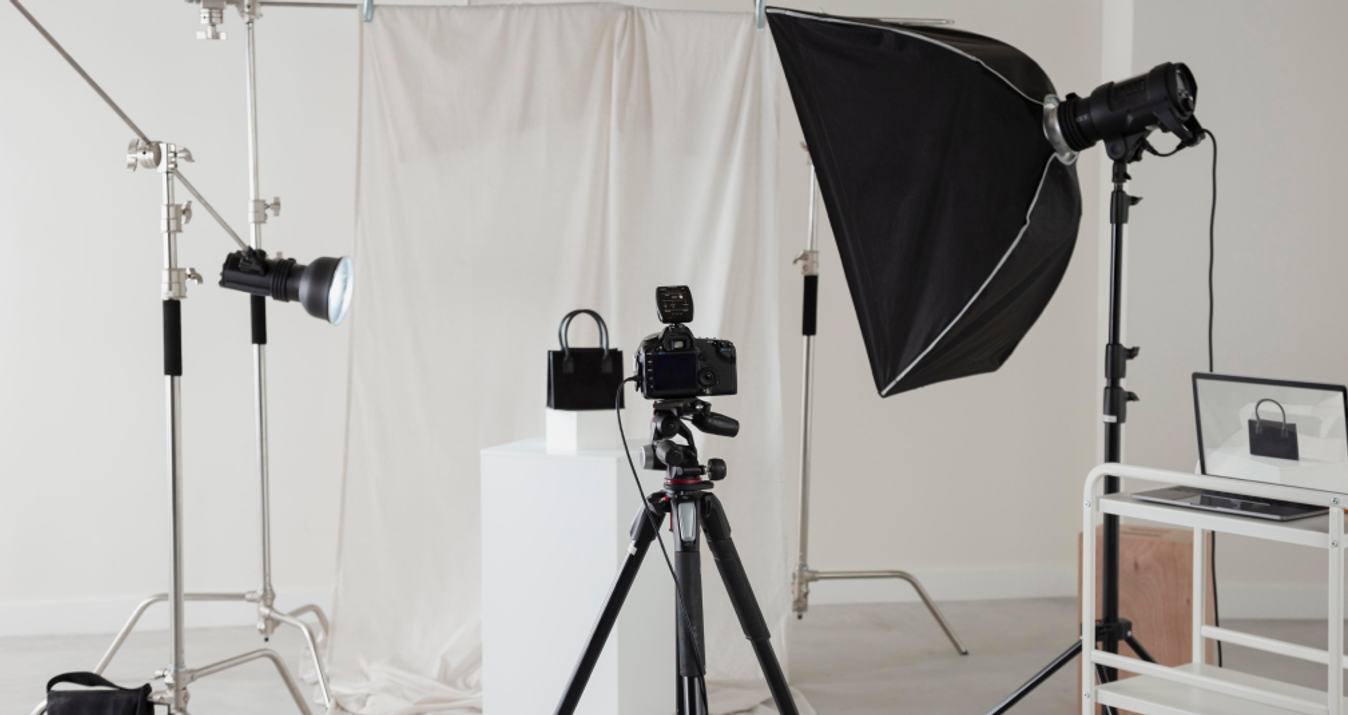How Big Is 5x7: All You Need To Know About The Photo Size
July 18, 2025

Wondering how big a 5x7 photo really is? Learn the exact dimensions in inches and centimeters, its historical roots, and why this classic photo size remains so popular.
Preserving memories for oneself and future generations is a long-standing human custom. From cave paintings to dedicatory artworks during the Renaissance, the art style grew steadily. Everything changed when photographic films were introduced. In barely 40 years, small devices have become the most noteworthy component of leisure and the selection of a decent archive of youth or young adults. However, if you look closely, the "pockets" in photo books vary in size. What are the dimensions of a 5x7 photo? In this post, we will look at this size completely and determine what lies behind its appeal.
What is a 5x7 Photo Size?
 Photography originated in the 1830s and 1840s. According to Britannica, William Henry Fox Talbot, an English scientist, tried to produce paper that was light-sensitive by immersing it in solutions of sodium chloride and silver nitrate. Thus, when exposed to light, a darkening occurred, which later became known as "negative". However, Talbot's approach of cleaning the print by immersing it in a strong solution of salt chloride was too soiled. This process was not successful until February 1839, when a method of enhancing the graininess of the paper was found. The term "photogenic drawing" is thought to have originated this year.
Photography originated in the 1830s and 1840s. According to Britannica, William Henry Fox Talbot, an English scientist, tried to produce paper that was light-sensitive by immersing it in solutions of sodium chloride and silver nitrate. Thus, when exposed to light, a darkening occurred, which later became known as "negative". However, Talbot's approach of cleaning the print by immersing it in a strong solution of salt chloride was too soiled. This process was not successful until February 1839, when a method of enhancing the graininess of the paper was found. The term "photogenic drawing" is thought to have originated this year.
Your AI-Powered Photo Editor for MacOS and Windows
Discover Now!A century later, newspaper snippets and scientific collections contain photographic works identical in style to those from the 1840s. Portrait images taken on Polaroid or for papers in the twenty-first century are descended from sketches made in the 1840s. Modern 5x7 picture frames in cm are 12.7:17.6, 5x7 in inches could be determined as 5” in width and 7” in height. The actual size of a 5x7 photo is in the ratio width : height as 15.2 cm : 21.6 cm.
Top 5 Most Popular Photo Sizes: General Review
 Why are there separate small and large photo albums to conserve space? That is not all. It simply depends on what you intend to capture. For example, a 100x200 cm frame is unnecessary for family photos. At the same time, it's challenging to appreciate landscape beauty on a tiny scale. As a result, below are some of the most popular photo book pockets.
Why are there separate small and large photo albums to conserve space? That is not all. It simply depends on what you intend to capture. For example, a 100x200 cm frame is unnecessary for family photos. At the same time, it's challenging to appreciate landscape beauty on a tiny scale. As a result, below are some of the most popular photo book pockets.
2x3. The most prevalent photo printing size, often used for family albums, postcards, collages, and wall and table framing. It meets the international A6 standard.
4x6. The common dimension for images taken with phones or cameras, particularly traditional family photos. Good for mass printing, but may not provide as much detail as 5x7.
A5. The aspect ratio is more suited to printing large portraits or photographs for usage in magazines or publications. This layout offers more information, however is less compact than 5x7.
5x7. This shape falls somewhere in between the smaller 4x6 (10.2x15.2 cm) and the larger A5 (14.8x21 cm) or 8x10 (20.3x25.4 cm). It is suitable for printing portraits and photographs with fine detail without taking up too much space.
8x10. Widely used for formal portraits and solemn photos. It makes more room for the frame; nevertheless, it takes up a larger area on the wall or in an album.
From Canada to Europe, photographers strive to get the most out of the vibe of a location or event. If you’re looking to capture the joy in the small details, 5x7 is the best image size for printing. That’s not a treasure for an experienced photographer.
There are two formats: vertical (portrait) and horizontal (landscape). The option is based on the image and how it will appear in an arrangement or album. When taking a classic portrait, you'll likely choose a vertical frame. Whenever you're taking a landscape or group photo, you'll use a horizontal orientation.
You may also like: Landscape vs Portrait Orientation: What is the Difference?
The Way to Boost 5x7 Photo Quality
 Editing images has become a part of photographers' routines as they seek to create an ideal from a simple shot. You can rebuild a pic in minutes after figuring out the equipment or Photoshop settings. How to do this while maintaining a 5 by 7 photo actual size? Find out now.
Editing images has become a part of photographers' routines as they seek to create an ideal from a simple shot. You can rebuild a pic in minutes after figuring out the equipment or Photoshop settings. How to do this while maintaining a 5 by 7 photo actual size? Find out now.
DPI Impact on the Number of Pixels for Printing (enlarge image)
Most beginner photographers notice a blur on the camera screen when zooming and assume it’s just a device issue. However, things get worse when it comes to printing. Do you think it's a good idea to enlarge image files? Maybe — but doing so can seriously reduce quality. What is 5x7 in pixels? The table below contains the main values and their explanation.
DPI | Pixels | Description |
300 | 1500 x 2100 | The standard for photo printing. High detail and no noticeable graininess. It corresponds to a 5x7 photo size. |
240 | 1200 x 1680 | A visually pleasing option, provided the image does not contain very fine details or will not be viewed from very close up. |
180 | 900 x 1260 | Resolution for photos that will be framed under glass and not viewed up close. However, some loss of clarity may be noticeable when viewed closely. |
150 | 750 x 1050 | The minimum acceptable quality for photo printing. Lower is generally not recommended as the image may appear blurry and pixelated. |
JPEG, TIFF, and PDF formats are widely used. JPEG is a compromise between quality and file size; however, it isn’t suggested for printing with high detail. Choose PDF for framing modest amounts of text (such as school projects or diplomas).
If you are printing images for a gallery or portraits, you should use 300 DPI to guarantee that the detail is flawless. For family albums, 240 DPI is sufficient; however, if you intend to reproduce photos in large formats, 300 DPI is recommended to maintain quality.
5:7 Aspect Ratio when Changing Photo Format
The 5x7 format has a 5:7 aspect ratio, so when you resize photos from other formats, the difference in proportions may lead to cropping. It is main to consider this when printing or cropping. How can we get rid of this effect? To adjust proportions, move the points on the crop line or trim them.
Online editors can also do this, although the results vary, as does the structure of ice crystals. For example, one may experience graininess complications, whereas the other will alter the aspect ratio. As a result, before beginning work, dedicate a few hours to testing the tool.
From Cheers to Action: Photographer’s Tips for 5x7 Size Application
 The 5x7 image has a 5:7 aspect ratio, so leave additional space on the sides. This avoids cropping critical sections of the frame when taking a shot. When shooting a portrait, take a step back from the subject's face to avoid losing any hair or shoulders during cropping. To extend an image with AI, supply the appropriate original and final dimensions. Some examples of applications are given in the table below.
The 5x7 image has a 5:7 aspect ratio, so leave additional space on the sides. This avoids cropping critical sections of the frame when taking a shot. When shooting a portrait, take a step back from the subject's face to avoid losing any hair or shoulders during cropping. To extend an image with AI, supply the appropriate original and final dimensions. Some examples of applications are given in the table below.
Variations | Purpose |
Family photos | This size is ideal for printing individual or family images. These photographs look nice on a wall or a shelf. |
Invitation cards | The 5x7 format is visually appealing and is widely pursued to print invitations for weddings, birthdays, and other special occasions. |
Photo in a frame | The 5x7 size is one of the most popular, so it is easy to find a frame to hang the photo in the room. |
Shot as a present | This is not a day gift, it expresses feelings, emotions, and meaning. As a result, with a heart-shaped pendant, a 5x7 photo will glitter with the appropriate hues. |
Photo in the album | Large-scale photo printing can be pricey. 5x7 images are small, but not too small, making them easy to attach to photo albums. At the same time, the quality cannot be compromised, and you will be able to view the face during a party or the emotions on a date. |
Well-lit photographs look considerably better in print. For the 5x7 format, consider locations where you can snap clear and well-lit images, as they will be easier to edit and print without losing quality. Don’t forget to prevent darkening while using neon lamps. This way, the face is not accentuated when photographing portraits. Instead, you'll receive multicolored dots that are blurry or grainy. At the same time, the uses of the text are extremely distinctive.
What does a 5x7 picture look like? You can see it in the pic below.
New Horizons of Capturing with Luminar Neo
 Photoshop allows for faster processing and editing because it has more functions than a camera. Luminar Neo includes everything you need for cropping and changing the aspect ratio. This allows you to simply convert any size to the 5x7 format while retaining necessary data. Here's how you do it.
Photoshop allows for faster processing and editing because it has more functions than a camera. Luminar Neo includes everything you need for cropping and changing the aspect ratio. This allows you to simply convert any size to the 5x7 format while retaining necessary data. Here's how you do it.
Open the photo in Luminar Neo.
Go to the “Crop” tab.
In the “Aspect Ratio” drop-down list, select 5x7.
Adjust the crop as needed.
Click “Export”.
In the export window: “Resize” — long string "Enter", for example, 2100 px (for 300 DPI, this is 7 inches x 300 = 2100 pixels).
Format: JPEG or TIFF.
Resolution: Set a 300 dpi standard for quality printing.
Save the result.
That’s basic, like in other photo editing apps. How to resize an image on a Mac? Use the Preview application. Open the image, then select “Tools”, then “Adjust Size”. Enter the new width and height, and click OK. You can optionally select "Fit into" from the pop-up menu to select a size.
Exclusive Tools of Endless Possibilities in One AI Editor
Explore Now!Final Thoughts
Some may believe that there is nothing exceptional about little photographs. They can, however, be kept in your wallet or displayed framed on your desk. This is an excellent opportunity to accompany your loved one on a work trip or to reminisce about youth. With Luminar Neo, you can enjoy a stunning shot without worrying about quality loss.





